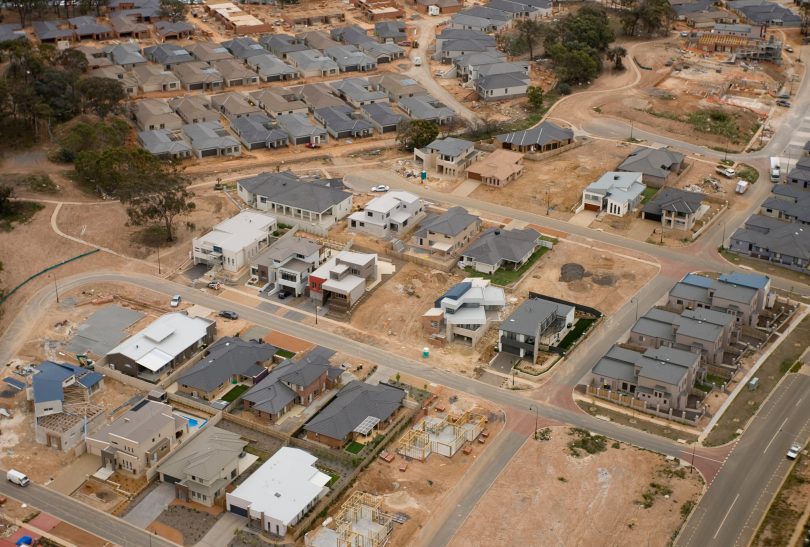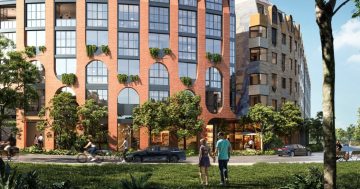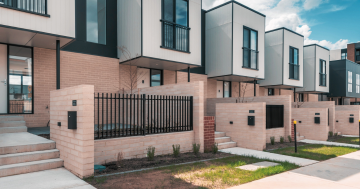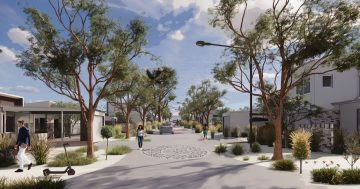
The new homes market is not providing enough choice. Photo: File.
It’s a fantastical experience poring through real estate websites, looking at the numbers so casually attached to the would-be dream homes.
That’s after you finally scroll through those for auction which, unless you’re lucky, have no guide whatsoever to the fortunes needed to secure a home.
And even if there is a guide, that’s usually pitched low to lure the punters in, who invariably are blown out of the water by the real, cashed-up buyers on the day.
It’s not supposed to happen but who’s to say it’s not the market in action?
Then there is the loan application, and again the way half a million to a mill or more is thrown around with such careless ease can be other-worldly for anyone without an account in the Bahamas.
The fact is, buying a home in the ACT, even with our high average incomes, involves intimidating deposits and terrifying debt.
Don’t get out of bed for anything less than $400,000 and that’s for apartments and townhouses under three bedrooms and the tangle of strata agreements and body corporates.
There are plenty of them around, but if you want a separate title and you have less than $500,000 to spend, then the hunt is well and truly on.
Family homes are rare as hen’s teeth at that level, and there aren’t many products in the market pitched at that particular sector.
How many young couples or even families concede defeat and accept a property that will not suit them, only to be a holding space until they have more cash for the inevitable upgrade?
The housing industry and government need to ensure there are more properties to fill this gap.
The ACT Government is requiring 15 to 25 per cent of new developments offer affordable homes, and some are offering undetached separate-titled homes.
Yes, the block is small but it’s yours, and the house itself is compact but can still contain three good-sized bedrooms.
There are usually too few to be sold directly so potential buyers face a ballot.
Surely there is a hunger for cheaper, well built and designed homes that make best use of land available, and aren’t out of the reach of people of average means?
There seems to be an array of choice for those who don’t mind living in the sky and have bought in to the whole living in the city vibe but for those wanting the low-rise, quiet and green of the suburbs the situation is stark.
Chief Minister Andrew Barr hinted at the lack of choice this week, talking about infill and new development, lamenting that it’s no wonder prices are high when people want a four-bedroom home with two bathrooms on a big block as a first home.
There is some merit in the case for more measured ambitions but a growing family may not want to be moving again for some time.
He was not so keen to mention the price of land but when pressed, commented that he did not want to see homeowner equity suffer from any sudden collapse in prices, although he suggested there were ways of getting more affordable blocks to market.
With a rare 320 square metre block in a new suburb like Taylor costing $280,000, one can easily see how that new home price starts looking unattainable.
If the price of land isn’t going to fall, the government needs to look at the planning, zoning and approval side and industry needs to start thinking more creatively and innovatively about what it can offer.
We need more people owning their own home and being in charge of their own destiny.





















